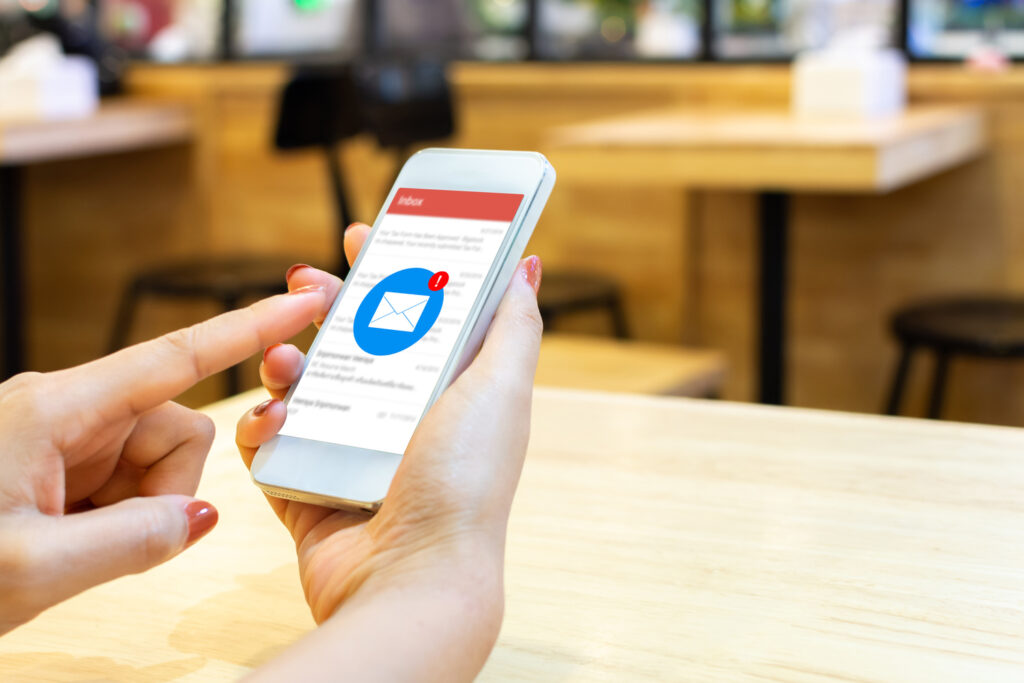
1. Metrics Time Tracking
It’s great to know. You can build on previous successes. Recognize where you can improve. Acknowledging where you can improve your products and services is easier (and more fun) than focusing on the negative. Tracking conversion and click-through rates is easy with email marketing software.
Use successful emails as a template for future emails. If an email with an image performs well, use an image in your next email.
While we would all like to hear good news, we must acknowledge that not every email will be a hit. That’s fine. And normal! Because of this, spend the same amount of time reviewing emails that didn’t perform well. Make sure you have clear calls to action, working links, and interesting content.
2. The Right Audience Reached
One of the biggest advantages of email marketing for small businesses is that you can reach your customers wherever they are. People are now more conditioned to ignore billboards, recycle promotional materials, and skip commercials.
In fact, research shows that people check email 30% at work and 50% at home. That’s a lot of inbox time! Email marketing software can help ensure your email is opened.
That doesn’t mean you should send emails every day, but you should send effective emails. Why? Because your network cares.
According to MarketingSherpa, 91% of US adults enjoy receiving promotional emails from businesses. People not only check email frequently, but also want to receive it.
Email marketing software allows small businesses to easily reach a ready-to-read audience.
3. Increased Outreach & Awareness
One of the biggest benefits of email marketing for small businesses is staying top-of-mind. Email marketing is a simple way to stay in touch.
This consistent outreach helps people remember your company when they need your services. Consistent, not irregular, is the key word here. If you only email your network once or twice a year to promote your business, expect low engagement. It’s all about you, not them.
Focus on regular communication with relevant content. Are you a realtor? You can talk about do-it-yourself home projects, budget landscaping, or even down payment advice. If someone feels compelled to contact you, make sure your information is easily accessible.
By providing useful information, you establish yourself as an expert and show your audience you care about them beyond a sale.
4. A Low-Cost Method
Email marketing has a proven year-over-year return on investment. Campaign Monitor found in 2016 that every $1 spent on email marketing returned $44. That’s almost $10 more than last year!
So, for small businesses on a budget, email marketing is the best option.
Creating flyers, attending conferences, and hiring help are all costly marketing strategies. They are valuable, but not something most small businesses can do regularly. However, email can (and should) be done regularly.
Your emails can reach thousands of people for free. According to a Shop.org and Forrester Research study, email marketing is one of the most effective ways to acquire new customers.
Less money spent, more money made.
5. Powerful Action Calls
Have you ever seen a commercial and forgotten what it was about, let alone the company selling it? Even if the ad made you laugh or was memorable, if you leave without visiting a website or taking action, it didn’t work.
A strong call to action can help accelerate sales. The request to “call now” or “email today” eliminates any uncertainty. This keeps their attention on your business.
In Conclusion
The advantages of email marketing for small businesses are numerous. While keeping costs low, an email marketing strategy can help you gain new customers, retain existing ones, and stay in touch